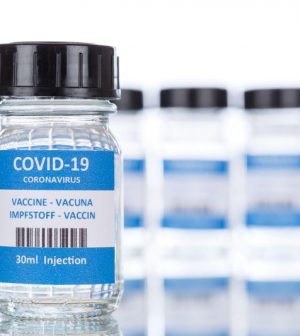- Could Your Grocery Store Meat Be Causing Recurring UTIs?
- Are You Making This Expensive Thermostat Error This Winter?
- Recognizing the Signs of Hypothyroidism
- 10 Strategies to Overcome Insomnia
- Could Artificial Sweeteners Be Aging the Brain Faster?
- Techniques for Soothing Your Nervous System
- Does the Water in Your House Smell Funny? Here’s Why
- Can a Daily Dose of Apple Cider Vinegar Actually Aid Weight Loss?
- 6 Health Beverages That Can Actually Spike Your Blood Sugar
- Treatment Options for Social Anxiety Disorder
Americans Have One Trusted Source for Info on COVID Vaccines

A doctor or nurse might be the only person capable of convincing a vaccine-hesitant person to get the COVID jab, a new study shows.
Those who trust the medical profession are most likely to get vaccinated against COVID, despite their initial hesitancy or resistance, according to a study published recently in the journal Preventive Medicine Reports.
On the other hand, exhortations from public officials at any level — national, state or local — can’t be expected to convince people to get vaccinated, results show.
“Our research suggests mobilizing the medical community is critical for addressing reluctance, uncertainty and distrust of vaccines,” said lead researcher Diana Silver, a professor of public health policy and management at the NYU School of Global Public Health.
Trust in government, public health experts and the medical community emerged as flashpoints during the pandemic, researchers explained in background notes.
Physicians and nurses continually rank among the most trusted professions in the United States, but it was unknown whether the polarization that took place during the pandemic had dented that trust, researchers said.
For the study, the team analyzed survey results from nearly 2,000 U.S. adults who were polled twice, in April 2021 and again in June 2022.
Participants were asked about their views on the COVID vaccine and whether they’d gotten vaccinated. They also were quizzed about their trust in the medical profession, their own doctor and government officials.
Levels of trust varied considerable between those who embraced vaccination and those who were skeptical or hesitant, researchers found.
About 88% of people who embraced vaccination reported high levels of trust in their doctors and 70% had high levels of trust in state and local officials.
In contrast, vaccine-hesitant folks were far less trusting: Only 46% reported high levels of trust in their own doctors, while about 25% had high levels of trust in state and local officials.
Trust in the medical profession was associated with vaccine-hesitant people in 2021 going ahead and getting the jab by 2022, results show.
For those who had embraced vaccination in 2021, trust in one’s own doctor was linked to seeking a booster in 2022, the researchers added.
The results also showed how COVID vaccines have been politicized, researchers said. Republicans and Independents were far less likely to get vaccinated or seek boosters than Democrats.
For future pandemics, doctors and nurses might need to lead the way in selling the benefits of vaccines to the public, the researchers concluded.
“The primary care workforce may, in particular, play an important role, given that many have longstanding relationships with their patients and have built trust,” Silver said.
More information
The U.S. Centers for Disease Control and Prevention has more about COVID vaccines.
SOURCE: NYU, news release, Feb. 7, 2024
Source: HealthDay
Copyright © 2026 HealthDay. All rights reserved.










